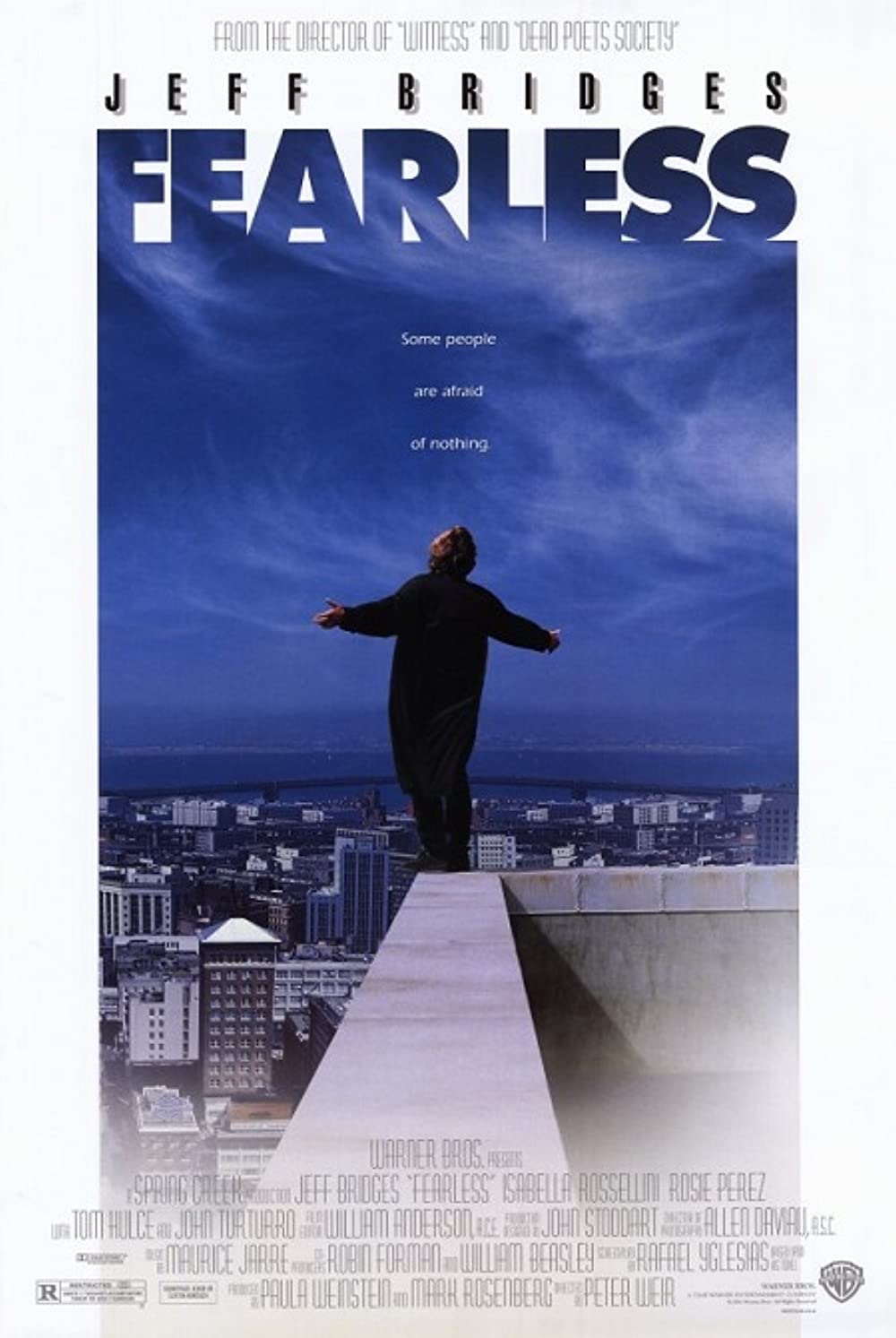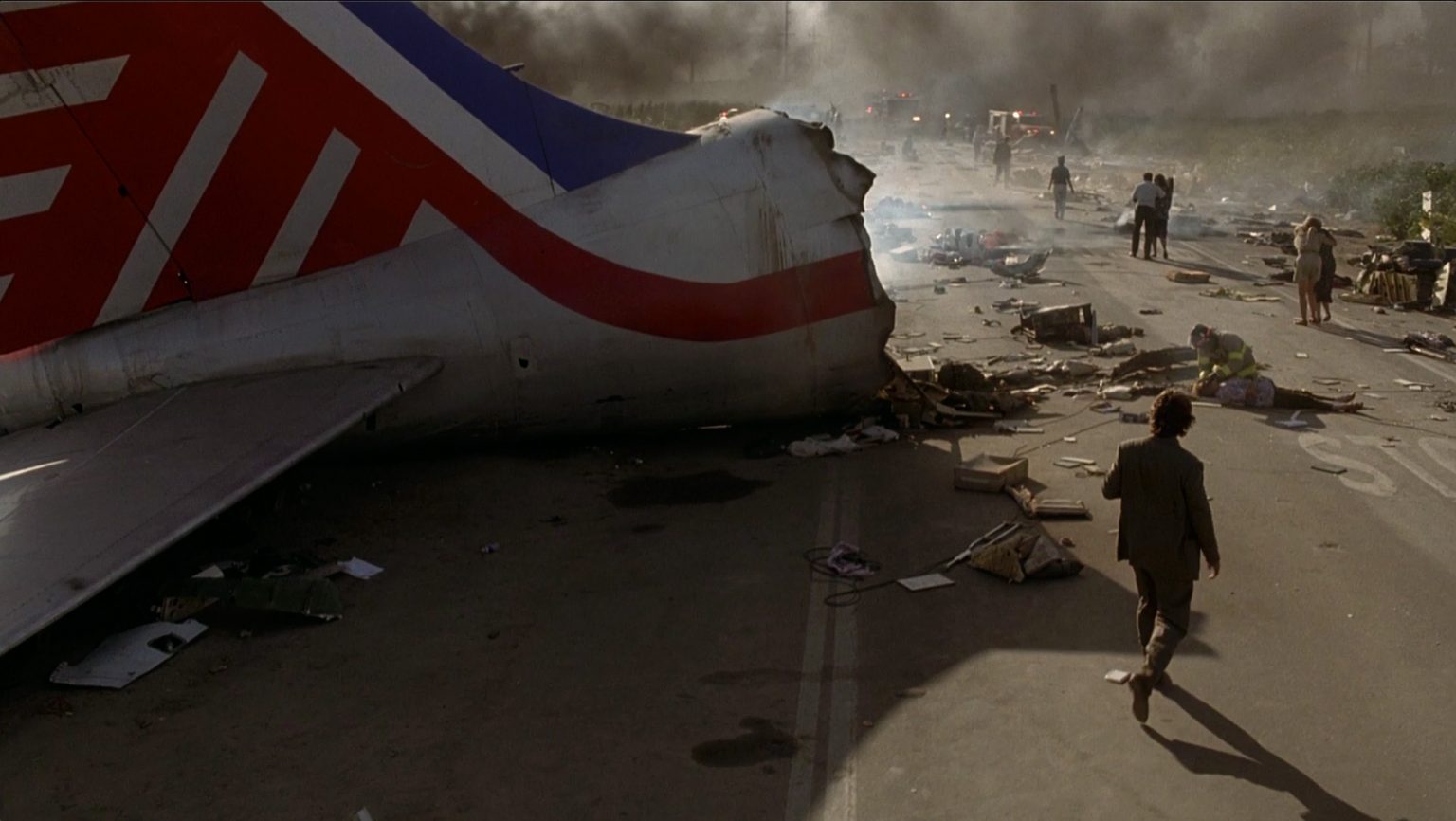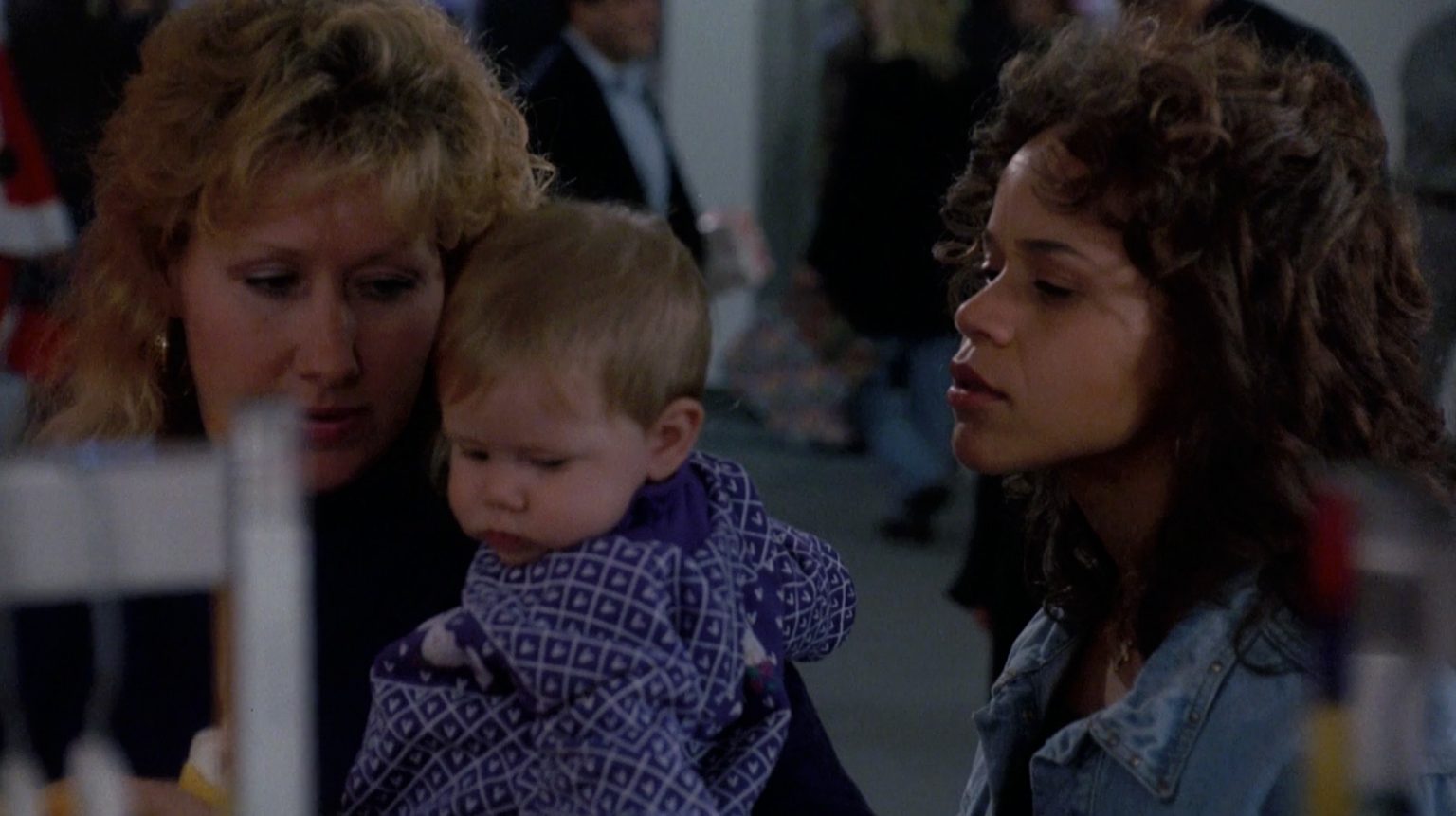Starring: Jeff Bridges, Rosie Perez, Isabella Rossellini, John Turturro and Tom Hulce
Written by: Rafael Yglesias
Based on the book by: Rafael Yglesias
Directed by: Peter Weir
Rated: R
Running Time: 2hrs 2mins
WINNER – Los Angeles Film Critics Association Awards: Best Supporting Actress (Rosie Perez)
WINNER – Chicago Film Critics Association Awards: Best Supporting Actress (Rosie Perez)
NOMINEE – Academy Awards: Best Actress in a Supporting Role (Rosie Perez)
NOMINEE – Golden Globe: Best Performance by an Actress in a Supporting Role in a Motion Picture (Rosie Perez)
“It (Fearless) was my first experience with a director that I felt truly believed in my ability as an actress. Yes, Spike Lee (DO THE RIGHT THING) believed in me and Ron Shelton (WHITE MEN CAN’T JUMP), but Peter Weir believed that I could go deep.” – Actress: Rosie Perez
“Death is random and arbitrary and that’s a very difficult fact to live with when you’re confronted with it. So in that sense, ‘Fearless’ is about the syndrome of survival, about guilt and trying to make sense of something that doesn’t make sense: ‘why did I live why did they die? — Writer: Rafael Yglesias
When I was first becoming involved with this picture, a dear friend of my wife’s and mine died. She had been ill for two years and I remember her coming to the house on one of her last visits out. As I greeted her, she looked me in the eye and all I could think of was that old saying about the eyes being ‘the window of the soul.’ It was a look without any barrier or artifice. I felt as if I were looking at her soul, seeing her as I’d never looked at her in my life… …I told Jeff that I thought Max was in that same place: he had accepted the great turning wheel that we all know is out there. But we can only intellectualize it, we can’t feel it somehow. What if you returned from that state, what if you found an ecstasy and, in coming back, found it very difficult to simply pick life up?” – Director: Peter Weir

Let me start by admitting that director Peter Weir is my all-time favorite filmmaker. With memorable films like WITNESS, DEAD POETS SOCIETY and THE TRUMAN SHOW, as well as misunderstood titles like THE MOSQUITO COAST and GREEN CARD, Weir has always been able to bring a genuine reality to the stories and characters that he creates and his underseen 1993 movie FEARLESS is no exception. A story about a man’s inner struggles while dealing with the emotional aftermath of a terrifying plane crash, the film is an unforgettable moviegoing experience that gives viewers an honest look at the human condition regarding a person’s relationship with their own mortality.
FEARLESS begins in the middle of an Iowa cornfield as a man, Max Klein (Jeff Bridges), carries a baby in his arms and leads a young boy away from what’s revealed to be a devastating plane crash (brilliantly realized by production designer John Stoddart (THE MOSQUITO COAST)). One of the most effective openings of any movie I have ever seen, the choice to begin the film after the actual disaster that begins Max’s inner journey is a daring but effective use of story structure. Weir and writer Rafael Yglesious (DEATH AND THE MAIDEN) are not interested in making the crash the story’s focal point. The movie is about something more profound. It is about the aftermath. It is about the effect that the experience has on Max and those around him. Rather than opening with an exciting plane crash that could overshadow the rest of the movie, the filmmakers proceed to reveal the terrifying situation through flashbacks. So well integrated into the story’s structure, these flashbacks allow the plane crash to work less like a thrilling movie moment and more like an emotional weight that’s constantly pressing down on Max’s conscience while also allowing the actual reveal of the disaster in its entirety (which comes at the end of the film) to play out on a more emotional level than it would have if shown earlier on.

The opening scene is more genuine than manipulative, drawing on the audiences’ emotions, as it plays out in a more matter a fact way. We see other survivors following Max out of the cornfield in a state of shock, a dead body is covered up by a blanket and a woman, Carla (Rosie Perez), someone who will become an important part of Max’s life, is dragged from the wreckage screaming for her dead baby. Everything about the way the scene moves forward feels incredibly real and true to life. Max moves past the wreckage with little emotion. He is a man who has just been put through a traumatic experience and seems to be in a state of disbelief, not knowing how to feel. At one point, later on, Max tells his wife that he actually thought he was dead. After delivering the boy, who is not his, to a fireman and then finding the baby’s mother, Max gets in a taxi and heads off to a hotel. He has no interest in sticking around.
Weir has created a film with no real villain, at least in a conventional sense. The antagonist for Max is his own inner demons as he must try and find the way back to his true self. Upon being reunited with his wife and son, they find him changed. The crash has altered his attitude towards life and not necessarily for the better. After walking away from this near-death experience, Max feels invincible, like nothing can touch him, a feeling reported by many who have faced similar experiences in real life. He suddenly finds himself tempting fate by walking along a skyscraper’s ledge, stepping out into traffic and eating strawberries which he’s deathly allergic to. Max, at first, views the crash as a blessing, but, in reality, it’s more of a curse that he must eventually be saved from.
Jeff Bridges’ portrayal of Max Klein is arguably one the best performances of his entire career. He seamlessly conveys all the different emotions Max is experiencing as a man who has faced death and come out the other side. Bridges brings a much-needed honesty to the character and doesn’t play Max as someone viewers should feel sorry for. He is a man who, at first, sees the situation as a second chance at life and now wants to live it as authentically as possible, right to the point of refusing to lie anymore, even if this means speaking with an honesty that others may not appreciate.

The heart of the story comes from Max’s relationship with Carla, a woman who also survived the plane crash but whose baby did not. Having survived an ordeal that would be impossible for anyone who wasn’t there to understand, the two share a bond, though they also have very different outlooks regarding the experience. As much as Max views the crash as a reawakening, Carla questions why it happened. A religious woman, she doesn’t understand why God would allow her baby to be killed in this way and wishes she’d died instead. Everything she believes in, including her faith, comes into question and Max sees himself as the one who must save her.
Rosie Perez proves herself worthy of all the accolades she received for her performance as she effectively allows the viewer to see into the soul of a woman who’s been emotionally destroyed. Most reviewers like to talk about the intense scene where Carla bares her true feelings to Max concerning the guilt she has regarding her son’s death. It’s a heartbreaking scene of real emotional power that could have easily been played to manipulate the viewer’s emotions by being oversentimental. Yet, both Weir and Perez refuse to take the scene in that direction. Instead, its power comes from the genuine emotions distilled into the performance, which ground the scene in reality. As strong as this sequence is though, it’s a more subtle moment that struck me personally as the most effective scene in the film and is one where Carla notices a woman carrying her child in a mall and approaches her from behind. Without saying a single word, she stares at the child, leaning in to almost take in his essence and the viewer can, at that moment, feel how much the death of her baby has affected her. It is a sincere performance that Perez gives and it only adds to the natural feeling of the film as a whole.
Max and Carla’s relationship is also one that most filmmakers would have been tempted to give a romantic angle to, but that isn’t the story that’s unfolding here. An attraction is felt at one point, but the script never allows the two an opportunity to fall in love or have an affair as that would’ve distracted the viewers from what is really going on thematically, as well as cheapen the nature of Max and Carla’s relationship. As he’s done in the past, Weir chooses to stay true to the underlying emotions of the story while staying away from the typical Hollywood clichés and the film is stronger emotionally because of it.

FEARLESS also boasts an incredible cast of characters that help to create the world that surrounds Max and Carla. They are all people who weren’t directly involved in the crash, but all have different reactions to the situation, allowing the audience an opportunity to explore the outsiders’ point of view as well. First, there is Max’s wife Laura, played wonderfully by Isabella Rossellini (BLUE VELVET), a woman who sees her marriage crumbling as Max distances himself from his family. She is a woman who starts to accept that her marriage may be ending but refuses to let the situation affect her son. Then there’s Carla’s husband, Manny, played by a young Benicio Del Toro (TRAFFIC), who is eager to get as much money as he can from the airline as compensation for the death of his son. John Turturro (UNSTRUNG HEROES) instills subtle compassion within psychologist Dr. Bill Pearlman, a man who wants to find the psychological reasoning behind how the survivors are acting while helping them find their way back to a somewhat normal life and Tom Hulce (AMADEUS) brings some humor to the film as a sleazy lawyer who only wants to take the airlines for as much as possible, even if it means getting his clients to stretch the truth about what happened. Even characters who share very little screen time get their moments to reveal something powerful about the situation. My favorite is a woman who appears at a group session that Dr. Pearlman has for the survivors. She is a woman who wasn’t on the plane but is looking for answers regarding her son, who was. She is in about two minutes of screen time, but it is an effective 2 minutes.
With FEARLESS, filmmaker Peter Weir has constructed an incredibly compelling moviegoing experience. From the film’s powerful opening moments to its emotional conclusion, FEARLESS effectively explores humanity’s relationship with their own mortality in a genuinely honest and thought-provoking way. I understand that another powerful film by Steven Spielberg called SCHINDLER’S LIST came out shortly after and may have stolen any chance FEARLESS had of coming out from under its shadow, but it’s now almost 30 years later and time for this incredible film to be rediscovered and given the chance it deserves to work its emotional magic on moviegoing audiences everywhere.
Watch FEARLESS
You May Also Like
